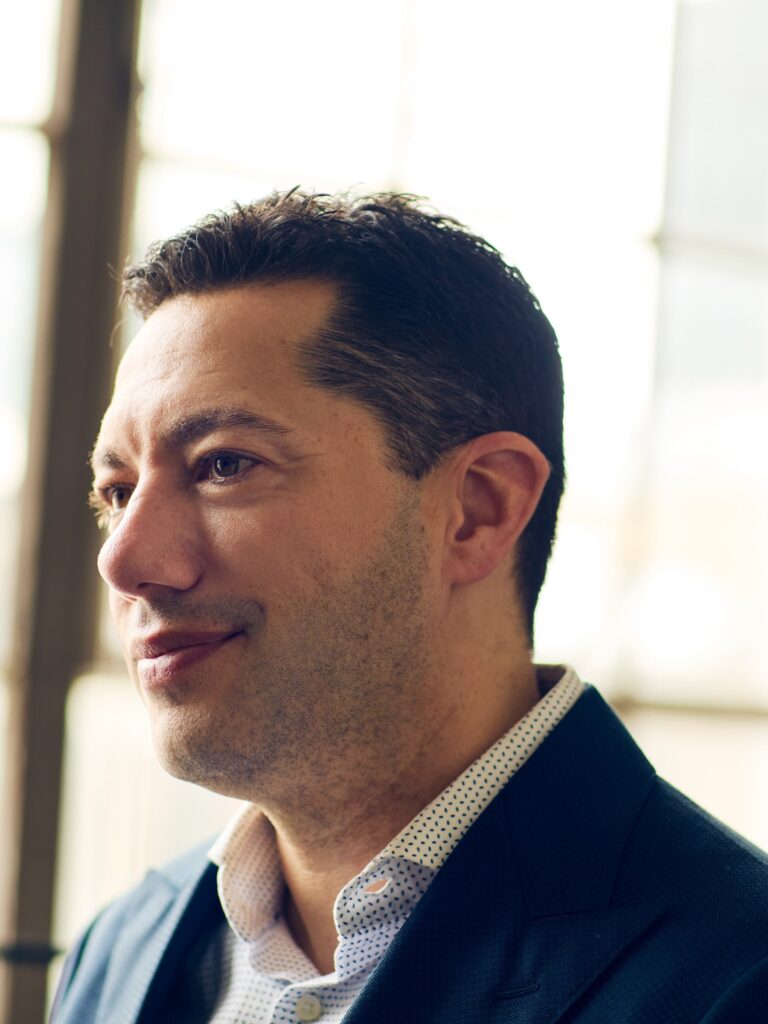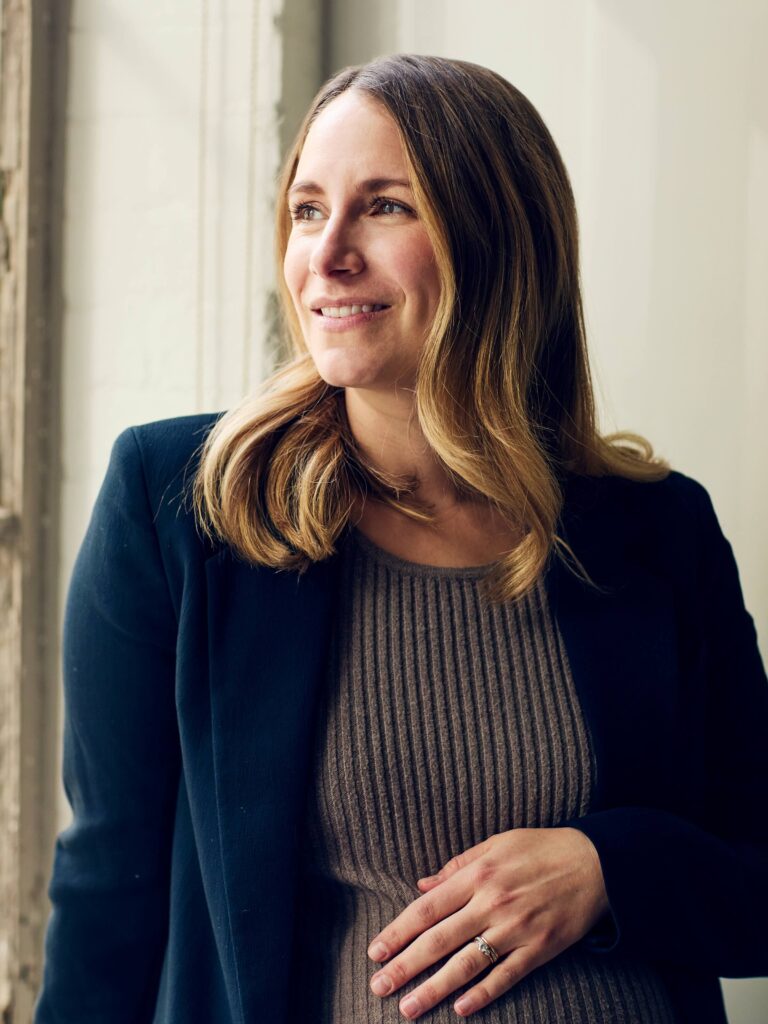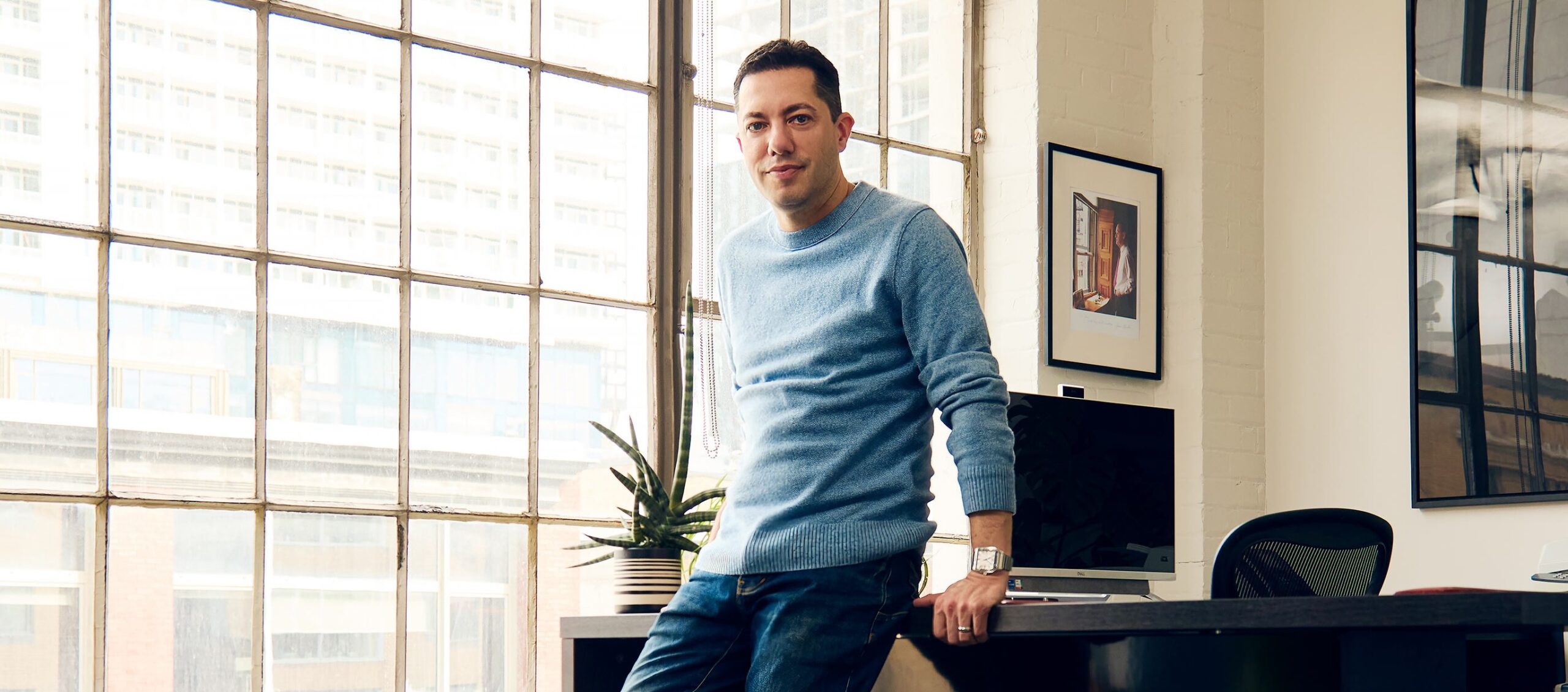In 2019, during Lindsay Board’s first trial as an associate at Daniel Brown Law LLP, she witnessed her new boss do something remarkable. The defence firm’s eponymous founder asked the judge to end early for the day so he could get home for his son’s birthday celebrations. “It sounds small,” says Board. “But I’d never seen someone senior, particularly a man, be so transparent about asking for what they needed for work-life balance, especially in court.” She had joined the firm that year, as a second-year lawyer, from a litigation boutique—where she’d primarily practised in corporate-commercial litigation but also had just enough exposure to criminal cases to spark a passion and a career pivot. It was striking, so early in Board’s criminal-defence career, to watch someone as established as Brown publicly choose to make space for his personal life. “That kind of thing is really important to see.”
It was also a reassurance that Brown would live up to what he’d promised Board during her interview process with the firm: humane working conditions, ample development opportunities, a clear path to partnership and agency over her career. “He said, ‘I don’t want to squeeze every drop of productivity out of you so that you get burnt out and leave,’” recalls Board. “He told me he wanted to be able to do meaningful work together for the long term, and that’s proven to be 100 percent true.”
Today, Board is a partner at Brown’s 14-lawyer operation, which has quietly grown from a tiny shingle put out by a guy who fell into law almost by happenstance—“I applied to law school to prove to my mother that I could,” says Brown—into one of the country’s most prominent defence firms. None of this was Brown’s plan back in 2008, when, after a few years at a large defence shop, he decided to go it alone. It wasn’t until four years later, when he hired his first associate, that he started to think about what it would take to get a good lawyer to stay. Once he started on that line of thought, he couldn’t stop. Was it even possible to create a defence firm that lets junior talent pursue the kind of busy, exciting work that lights them up, without grinding them into the ground? If so, could he build it?
By chasing the answers to those questions, Daniel Brown Law has become a rare defence firm in which people tend to stick around. “It happened very organically,” says Brown. “Everything’s been an experiment.”
Why defence lawyers leave

“Let’s not just do things the way we’ve always done them,” says criminal-defence lawyer Daniel Brown.
To understand what makes Daniel Brown Law a unique workplace, let’s probe why talent seems to turn over so often among defence firms. It’s a situation partially attributable to the gravitational pull of the Crown, which can lure promising associates with relative cushiness and stability. But that’s hardly the only cause of attrition.
Historically, few defence firms have bothered to create business models conducive to retention. Perks like health benefits, which are table stakes in other practice areas, are less common in the realm of criminal defence—an industry peculiarity that may be the result of size (very small firms might resist the expense), apathy (if the competition isn’t doing it, why bother?) or both. And if leaders have received management training—a big “if”—they don’t always have the time or inclination to apply it in real life.
Defence law is also a rough gig, full of long days, unpredictable client needs and hostile interactions. This can take a toll on even the toughest practitioners. In a 2022 analysis of the mental health of Canadian lawyers in 10 areas of practice, defence law topped the list in prevalence of burnout and psychological distress (each affecting nearly two-thirds of defence lawyers) and showed the highest rate of depression. “It can be really draining to have to fight almost all the time,” says Megan Savard, who founded the seven-lawyer defence firm Savards LLP and has had several conversations with Brown about shaping their respective firms in a new mould. The harsh reality of the practice area can push some counsel to abandon it altogether.
There’s also an anti-establishment bent that runs through the defence bar. “Many of us got into criminal defence because we are very sceptical of the usual way things are done,” says Savard. In some instances, junior associates branch out as sole practitioners as soon as they have a few years of experience because they’d like to be the ones in charge. But it’s also hard to be on your own. As Savard herself has observed, many solo defence lawyers would rather practise in an environment that offers genuine support and a sense of community. That’s what changemakers like Savard and Brown are trying to cultivate.
The retention formula
Broadly speaking, Brown offers his team the sort of caseload you’d expect at a busy defence firm. Juniors enjoy plenty of court time and routinely collaborate with senior partners on big files. That, in itself, is pretty common. At Daniel Brown Law, however, associates also have real agency over their work—and the firm has their backs so they don’t feel alone.
Brown has made it a top priority to give every lawyer the freedom to take—and refuse—cases as they like, without repercussion. “We never say, ‘You have to work with this difficult client,’” says Brown. Sometimes, that means turning business away. But, in his view, lawyer engagement has far more long-term value: “It’s just short-sighted to force someone to do work that will make their life suck.”

“If you want to take on a piece of work and use your precious personal time to, say, run a bail hearing on Sunday, you get to take home a piece of that,” says Lindsay Board, a partner at Daniel Brown Law.
Ample research connects autonomy to employee retention. When people have control over what they do and how they do it, they’re more productive. Lawyers, in particular, are less likely to burn out when they have decision latitude in the workplace. Brown feels this in his bones. He knows how awful it is to be saddled with files you hate, against your will. His frustration with just that is what prompted him to start his firm in the first place.
The firm’s lawyers also benefit from a profit-sharing program. The mechanics have evolved over time—in fact, Brown is currently working with a consultant on an update—but the core objective has remained the same: give people flexibility. He expects his team to work hard, but no one has to log long hours or put in overtime. That’s a core value. Meanwhile, if a lawyer does want to hustle beyond Brown’s base-level expectation, the proportionate windfall will match the effort.
Board sees the profit-sharing model as a crucial way to empower lawyers to take control of their careers. “If you want to take on a piece of work and use your precious personal time to, say, run a bail hearing on Sunday, you get to take home a piece of that,” she says. “It makes you feel more invested and more valued than just being told, ‘Go do a bail hearing on a Sunday.’” Importantly, though, a fair compensation regime is about more than cash itself. As Board explains, “It’s about your stake in the firm, and respect for your time.”
A work in progress
Backstopping these measures of self-determination is a suite of supports meant to ease the stress that comes with such a taxing job. Like most employers of choice, Daniel Brown Law offers robust health benefits and plenty of vacation. In a sector where parental-leave benefits are, in the words of Board, “all over the place,” the firm has developed a policy for new parents that features generous salary top-ups and flexible return-to-work terms. “That’s incredibly important if you want to retain young lawyers,” says Board, who helped shape the policy and is currently on her second parental leave.
Brown is the first to stress that the firm’s talent approach isn’t perfect. He and his partners are constantly tinkering with how they do things and revising the model to better meet the needs of the team. Lawyers still leave, from time to time.
But if the firm is succeeding in challenging the narrative that the defence bar is a revolving door, even a little bit, Brown considers it a win. “There’s an instinct among some lawyers that overwork builds character,” he says. “It’s that idea of, ‘Well, I had to do it, so you should too.’ My thinking is different. Let’s not just do things the way we’ve always done them. Let’s do things the way that makes sense to us.”
Photography by Nick Wong.


